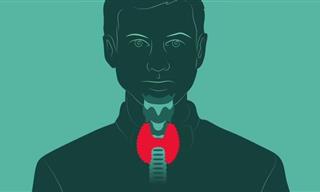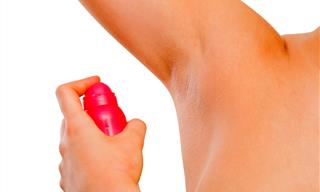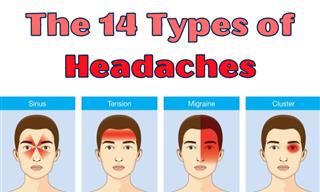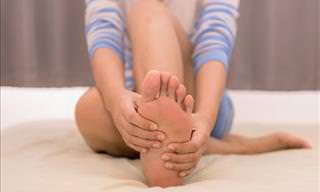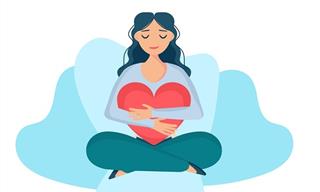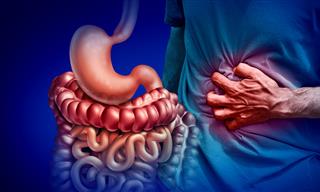The intestines are responsible for a major part of the most important processes in the digestive system by preserving the substances needed for our bodies, such as vitamins and salts, and regular removal of harmful substances such as toxins and waste. Problems with bowel function can lead to the accumulation of toxins on their walls, which can cause symptoms such as constipation, swelling, pain, inflammatory processes, and even bowel obstruction. The following tips will teach you how to prevent the accumulation of toxins in the intestines, diagnose situations that may indicate a problem related to this condition, and also how to treat yourself in the event of toxin and harmful waste accumulation.

Signs of toxin accumulation in the intestines
The action of cleansing the intestines is made possible by the cooperation between muscles and nerves that lead to a wave movement that moves waste into the anus. When food reaches the large intestine, it is sorted meaning important nutrients are absorbed, and whatever remains is removed from the body. However, many foods that are harmful to the body take a long time to be removed, leading to a situation of waste accumulation on the intestine walls or in the blood system. For this reason, the signs of accumulation of toxins may appear not only in the digestive tract but also in other parts of the body.
If you experience gastrointestinal changes such as abdominal pain and swelling, along with one or more of the following problems, it is very likely that your body is showing signs of toxin accumulation. Among the most prominent problems one can see are:
1. Changes in the skin system
The accumulation of waste in this system can lead to a "blockage" in the proper filtering of toxins through the skin, thus causing problems such as rashes, eczema, fungi, psoriasis, and allergies.
2. Mood changes
In a comprehensive study conducted by researchers at Cork University in Ireland, it was found that certain bacteria that thrived in mice’s gut area led to changes in their behavior that were expressed in fatigue, depression, memory problems, and sleep disruptions. The researchers noted that the same bacteria thrive in people with intestinal dysfunction, which led them to conclude that the same effects may also occur in them.
3. Changes related to blood pressure
Blood pressure disorders, headaches, and migraines may be caused by waste discharges from the intestines to the circulatory system, therefore, it is very important to pay attention to such changes if they occur hand in hand with gastrointestinal disorders.
4. Infections in the urinary tract and in the kidneys
In a study at the Columbia University School of Medicine, researchers found that some patients with kidney-related illnesses also have intestinal infections. The researchers believed that in some cases the intestinal infection caused disturbances in the secretion of waste products which the kidneys are responsible for, leading to recurrent pain and inflammation in the kidneys and urinary system.
Treatment of intestinal toxins
1. Prevention
Although most of us find it difficult, the first step in keeping healthy intestines is to avoid, as much as possible, food that can hurt us and cause an accumulation of waste over a long period of time - such as industrial or pesticide-filled food - and excessive use of laxatives which can cause your intestines to become "lazy." To encourage normal bowel movements, try eating fiber-rich foods such as sweet potatoes, prunes, cherry tomatoes or oatmeal, along with fermented foods that promote bacterial activity leading to beneficial bowel changes, such as kefir yogurt or sauerkraut. Click here to learn how to make your own home-made sauerkraut!
2. Cleanse the intestines using nutrition
In cases where we feel changes in bowel activity, there are foods that are known to be able to clean the intestines and encourage them to return to normal activity without resorting to a colon cleanse or medication.
A. Vegetables with chlorophyll
Chlorophyll helps the growth of "good" bacteria in our intestines, inhibits the growth of bad bacteria and protects the lining of the intestines; All these allow chlorophyll to help us in promoting a healthy digestive process along with cleansing the intestines. Green vegetables in general and leafy green vegetables, in particular, are an excellent source of chlorophyll, and can be consumed in their entirety in juices or shakes; Among these vegetables, the most recommended for consumption are lettuce, cabbage, celery, broccoli and more.
B. Apple cider vinegar
The nutritional fiber Pectin, which can be found in apples in abundance, is a substance that contributes to healthy digestion by strengthening the lining of the colon and assisting in the removal of waste and toxins that have clung to the walls of the intestine and "stuck" to them. You can increase your intake of fiber by eating whole apples or drinking apple juice, but the most recommended source is apple cider vinegar, which can be used to dress salads and in various sauces.
C. Ginger
Ginger is a triple threat against a number of key problems that may be caused by bowel disruptions. This root provides an effective treatment for inflammatory processes that may be caused by toxins or waste in the intestinal tract, is known to improve intestinal activity and helps to improve the absorption of the good substances needed by the body. You can add grated or sliced ginger to soups, salads and even jams. Ginger powder can be used to make sauces, meat dishes or cakes.
D. Aloe Vera Juice
Most of us are used to using aloe vera as an ointment to relieve burns or wounds, but it is also advisable to consume it as juice. Aloe Vera helps to balance the condition of people suffering from a variety of bowel problems such as Irritable Bowel Syndrome or Crohn's Disease, and also helps to clean intestinal lining from waste.
Juice Cleanses for Colon Health
Another way to contribute to intestinal cleansing is through cleansing programs, which work similarly to a manual colon cleanse in their goal to remove toxins from the intestines, however, juicing is a much simpler at-home procedure using natural juices.
Cayenne and lemon juice
Cayenne, a spicy red pepper, has many health properties for the stomach, intestines and even the heart. It helps in building new tissues and it can be obtained in powder form in most health food stores.
Ingredients:
- 1 cup filtered water
- A pinch of cayenne pepper powder
- 2 tablespoons maple syrup
- Juice of ½ a fresh lemon
Preparation and use:
Mix all ingredients and drink between 5 and 8 teaspoons of the juice a day for at least 10 days.

Mint oil juice
Essential oils provide good support for the process of cleansing toxins from the body by using nutrients that are absorbed in the intestines which help good bacteria to flourish.
Ingredients:
- 10 drops of peppermint oil
- Juice from one lemon
Preparation and use:
Add a teaspoon of your mixture to a glass of water and drink it. Repeat for two weeks.
Detoxing through lifestyle changes
Stress and anxiety can lead to poor or irregular diet, which can lead to the accumulation of toxins on the lining of the intestine along with other digestive problems. In order to deal with the problem, try to maintain adequate sleep and incorporate at least a few minutes of exercise into your daily routine. Exercise is the most important component in overcoming problems associated with bowel movement, since it increases the body’s output of toxins through sweat secretion, promotes and stimulates the activity of the intestines to prevent constipation and also helps the secretion of endorphins, hormones which help to reduce tension and stress. Even if you don’t have time for prolonged exercise, use the following exercises specifically designed to treat bowel problems.
Bridge stretch
This exercise consists of stretching the body backward in order to "unlock" the organs of the digestive system, which for a large part of the day are "compressed" while encouraging the supply of blood to the heart to ease fatigue that may be caused by poor digestion.
To do this exercise, lie on the floor with your hands at your side and palms facing up, lift your buttocks and bend your legs at a 90-degree angle. You can use some support to increase the curve of the spine or to keep your feet on the floor. While exhaling, press your feet toward the floor and stretch your knees forward. Take 10 deep breaths, then gently lower your back to the floor. Repeat the exercise 3 times.
Child’s pose
The following stretch is recommended after a large meal to avoid pain, swelling, and cramps, which sometimes follow a meal that loads the digestive system and leads to the accumulation of toxins in the intestines later on.
Kneel on the floor, keep your buttocks close to your heels, bend forward and stretch your hands forward slowly, without moving your buttocks. Release your head and neck toward the floor and feel your abdominal muscles stretch. Stay in this position for 5 breaths and then slowly crawl your arms back into place. Repeat the exercise 3 times.
image source: MilitaryHealth, adrian valenzuela, rabiem22, Laboratoires Coloplas
 Go to BabaMail
Go to BabaMail






















